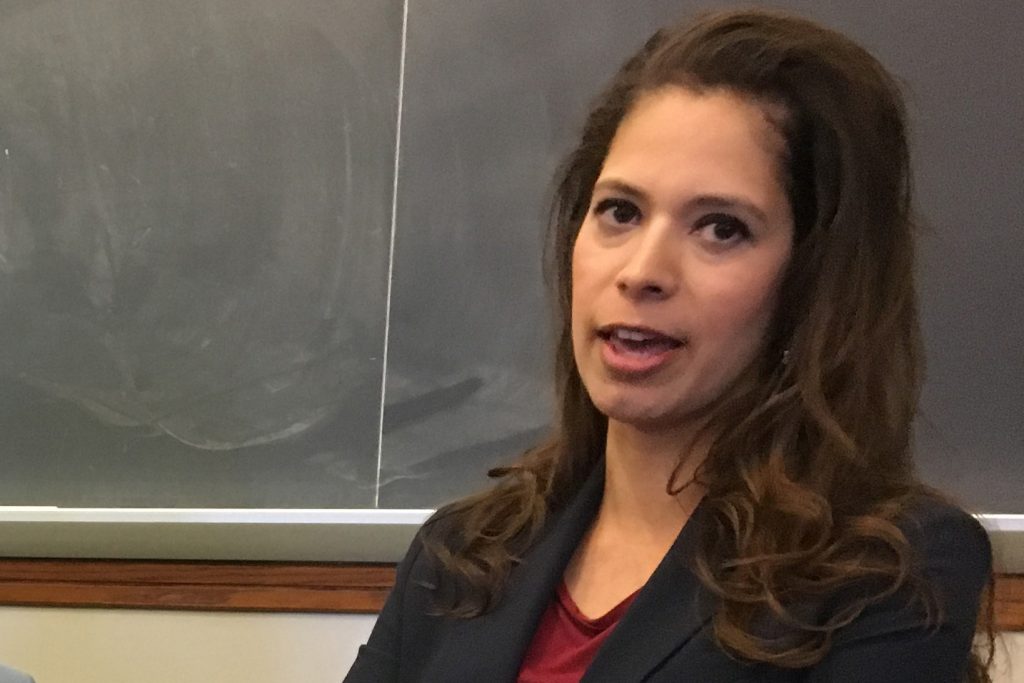Focusing on the growing need for workplace diversity and female role models in the legal profession, Boston College Law School hosted a panel on March 27 entitled Women in the Law: The South Asian Perspective. The event, co-hosted by the South Asian Law Students Association (SALSA), American Constitution Society, and Women’s Law Center, featured four Boston-area practitioners who spoke about their experiences and offered advice to students entering a changing legal field.
SALSA President Pooja Mehta led Amoli Pandya ’13, an associate at Goodwin Procter; Priya Amar ’13, an associate at Goulston & Storrs; Priya Lane, Justice Project director at the Lawyers’ Committee for Civil Rights and Economic Justice; and Uzma Saghir ’08 (pictured above), corporate counsel at Liberty Mutual Insurance, through a discussion about how their identities have shaped their legal careers and helped them overcome barriers in the workplace.
All four panelists spoke about experiences, especially early in their careers, when they were seemingly held to higher standards than their peers. “When you’re directly or indirectly told that you don’t belong, or ‘don’t look like a litigator,’ you feel like you always have to prove yourself and be better than the average person,” Amar said. Pandya echoed the need to “prove your value, above and beyond, even as you grow more senior.”
Panelists also addressed how they handled the lack of Asian and female role models in their workplaces. “Part of the problem is that there aren’t enough women in positions of power,” Lane said. “You have to advocate for yourself as a woman of color. Don’t wait for people to see the work you’re doing and reward you.”
“Asian women haven’t been in the legal industry long enough to have 20 years’ worth of supervisors and partners above us,” Pandya said. “We’ve got to bring ourselves up and bring everyone below up with us. If you’re aware of the lack of diversity you can take advantage of the opportunity to guide others.”
“You have to find and use your allies,” Saghir added. “You can’t be bothered by being labeled. Show that someone with your skillset, experience, and resume has options and value.”


